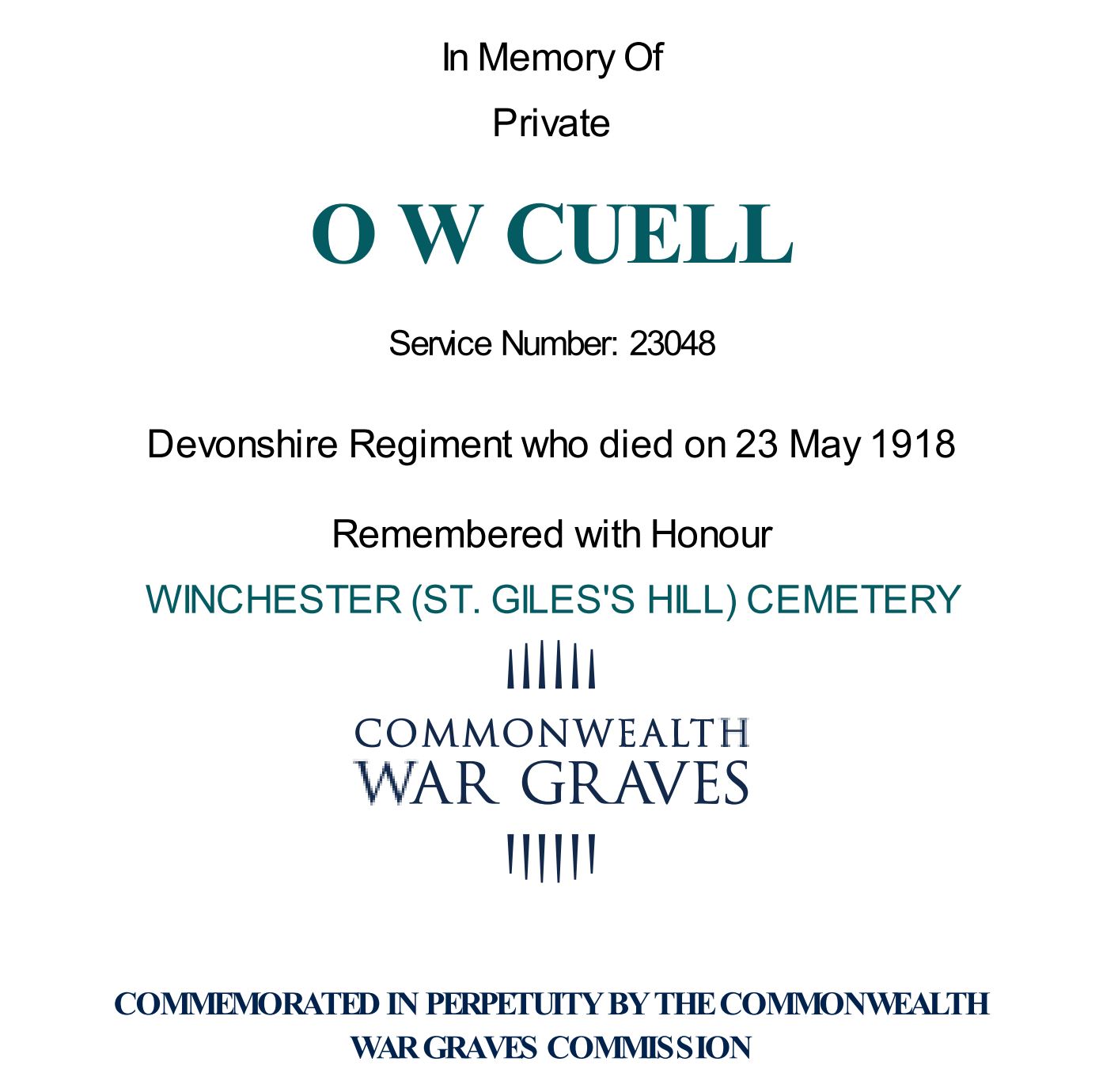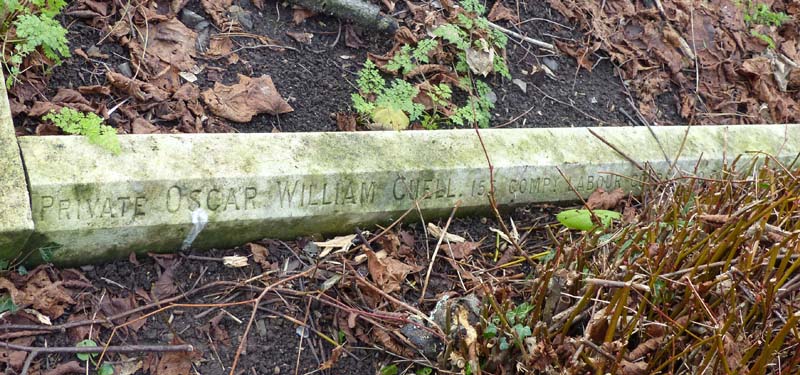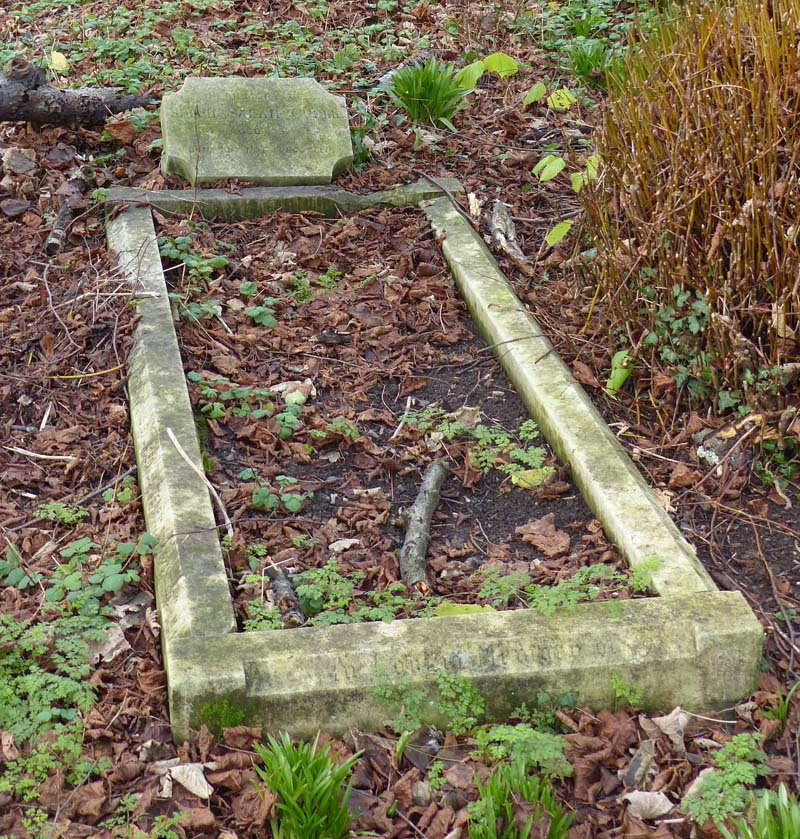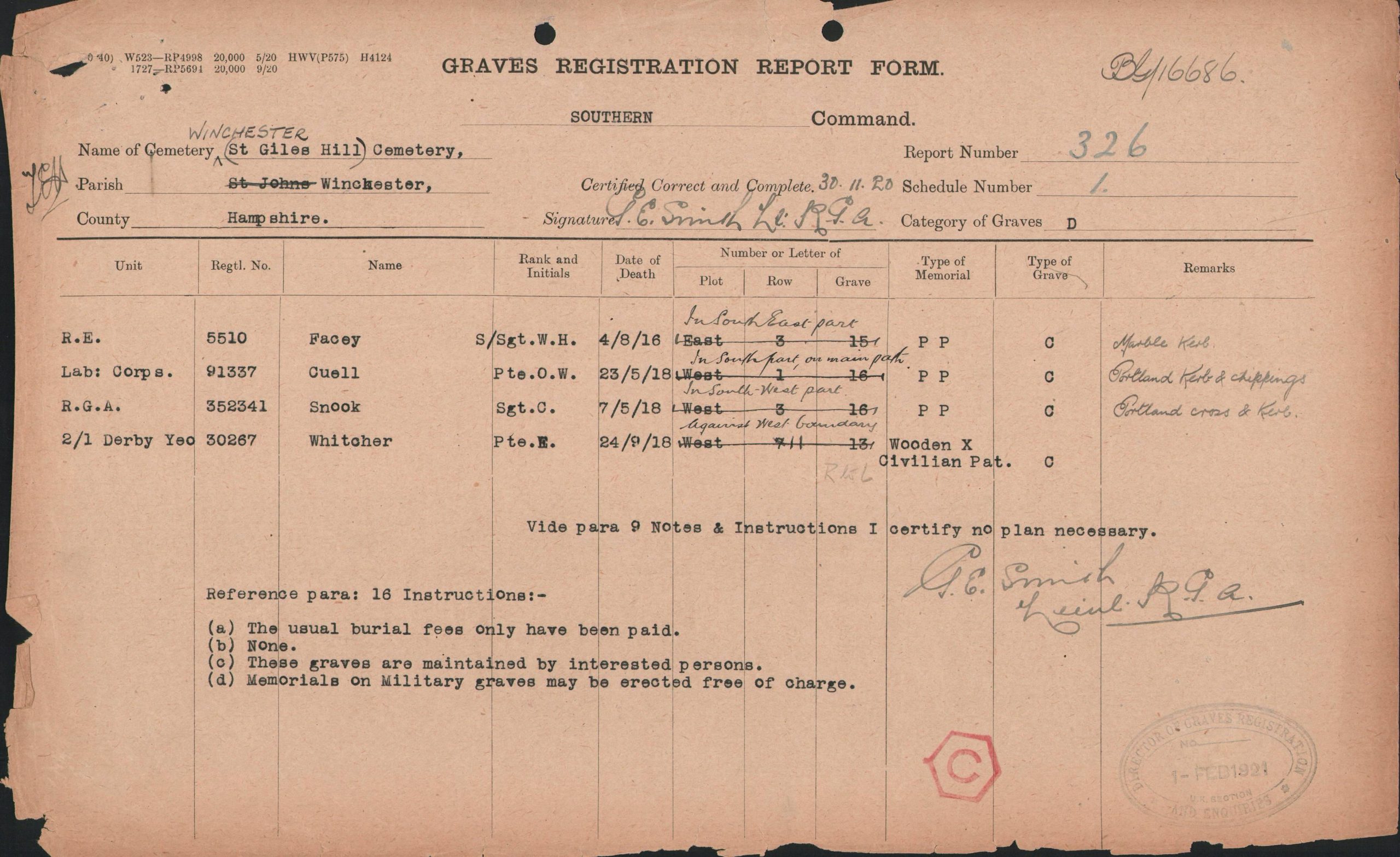
Oscar William Cuell was born about November 1879 in Crawley, Hampshire. In the 1881 Census, his family was listed as living at Winchester Street in Crawley, Winchester. Crawley is a small village to the NW of Winchester. By the 1891 UK Census, the family had moved to Stockbridge Street in Crawley, Winchester, Hampshire. His father’s occupation was a farm servant Shephard. Ten years later, at the age of 21, Oscar was working as a domestic gardener in Crawley and he appeared in the 1901 UK Census as head of the household at The Folly, Crawley, Winchester, Hampshire.
Oscar William Cuell and Edith Sarah Weaver were married on 28 November 1915 in New Alresford, Hampshire and are shown as living in East Street, New Alresford.

At the age of 36 years, the day after he married, Oscar attested to serve in the Devonshire Regiment, 23048, on 29 November 1915. This was possibly in response to the Derby Scheme announced in October 1915.
Derby Scheme, 15 October 1915. The urgent need for more men to fight in the war and the falling numbers of volunteers resulted in the announcement of the Derby Scheme. This required that every man between the ages 18 to 41 years be canvassed to create a National Register. Each man was asked to join up immediately or attest his willingness to serve when summoned. Attested men were split into two categories, single and married, each was further subdivided into twenty-three groups according to age. Groups would be called up as required, beginning with single men aged 19 years. The youngest married men would not be called up until all twenty-three groups of single men had been called up.
His medical records show that although he had good development, he was partly deaf on both sides and required dental treatment. As a result, he was marked as fit for Home Service only and he was transferred to the Labour Corps, 91337. Army records show that Private Cuell was placed in the Army Reserve and was home between 29 November 1915 the 3 April 1916 when he was mobilised. On 7 April 1916 he was posted to No. 6 Labour Company before being posted to the 12th (Labour) Battalion on 9 May 1916.
The 12th (Labour) Battalion, Devonshire Regiment was formed in Devonport in May 1916 and in June 1916 they landed in France and joined to Fourth Army. Oscar was sent to France on 14 June 1916. Later in April 1917, the 12th Labour Battalion was transferred to Labour Corps as 152nd and 153rd Labour Companies. Private Cuell was listed in 153rd Company Labour Corps.
Private Cuell’s medical records also show that when he reported sick on 12th April 1918, he was in Albert, France. He was listed as having a frontal headache and sickness. On 1 May 1918, he was admitted to hospital in Rouen with Gastric Enteritis. On 7 May 1918, Private Cuell was invalided to England on-board the hospital ship, S.S. Western Australia. His symptoms persisted and bacteriological tests were performed but the results were negative. His condition continued to deteriorate, and he died on 23rd May 1918, aged 38 years, in University Hospital, Southampton. His cause of death was listed as Gastritis and Enteritis. A later report notes that he ‘exhibited the symptomology of Cerebral Tumour. Headache, vomiting and optic neuritis. Post-mortem revealed a Cerebral Tumour’. It concluded that ‘his death was aggravated by Military Service’.
At that time, Private Cuell was listed under the Southern Command Labour Centre, Labour Corps and his wife’s address was listed as Castle Bank, 4 South Parade, Southsea, Hampshire. His remains were sent to Winchester Station for internment by his relatives. Pension records from August 1918 show that his widow, Edith, was living at 35 Wharf Hill, Winchester, Hampshire.
After his death, a Next of Kin Memorial Plaque and Scroll were sent to Oscar’s wife in July 1921. However, a letter from his Mother-in-Law, Kate Weaver, indicates that his wife had since died. Records show that she passed away on 30 April 1919.

His grave is situated at the west side of the entrance path of St Giles Hill Graveyard close to the edge. It is a private monument, like the of Cyril Ambrose Snook that lies behind it.

Thanks go to Stuart Adlam from the CWGC for supplying the above information.
Reference: The book, “Debt of Hour (Winchester City’s First World Dead)” by Jen Best.
Don’t hesitate to get in touch with Dave Stewart Email dave@stgileshill.org.uk if you have any questions, corrections or additional information that could be added to this page.
